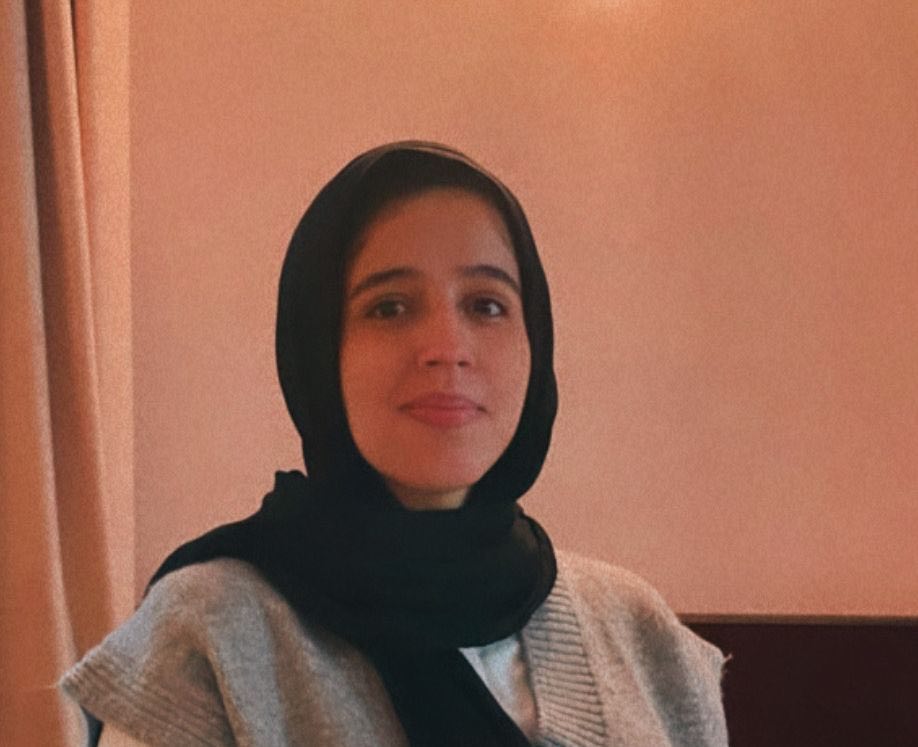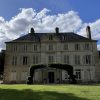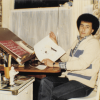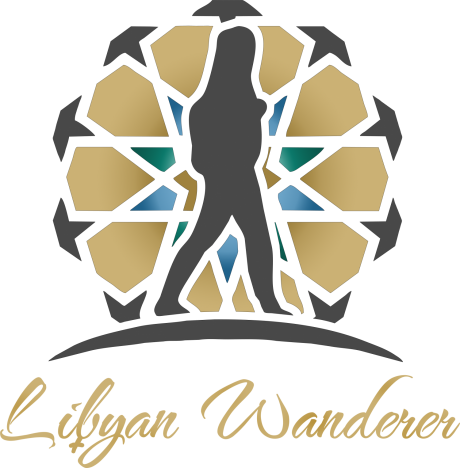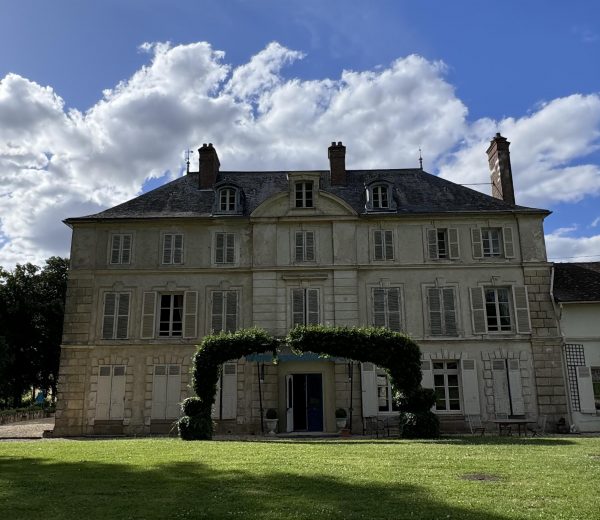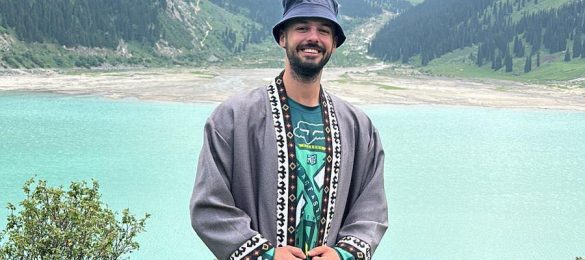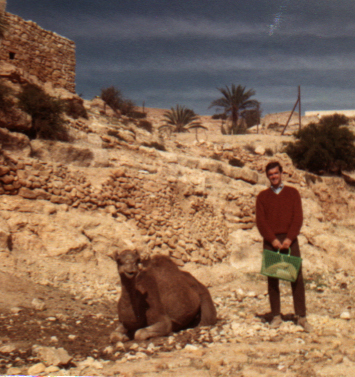
Libya has gone through many changes and events throughout history. There are numerous stories told while other endless stories are still waiting to be told. From the formation of the country and going through many political changes to settle in an unknown reality today post the revolution in 2011, people still have plenty of stories in store. I dedicated myself to read and research everything related to my country’s history, especially that, before 1969.
Over 50 years had passed and I never thought I would get to be part of a puzzle that was once left unsolved in 1968. A puzzle linked to my hometown in the Nafusa Mountains, Al Galaa. In 2019, I got to virtually encounter a former Peace Corps volunteer in Libya called Randolph Hobler. He went to Libya, specifically Al Galaa town, to teach English language. He went back to the US after spending a year in Libya with stories to tell. Only to decide years later to write a book that combines everything about his journey.
How I came to know Mr. Randy?
Thanks to my friend, Ali Elrayes, who was hosted by one of the American Libya volunteers, Richard Massey. Ali told Richard about Al Galaa and Mr. Massey introduced Ali to Mr. Randy in return. Ali connected me with Mr. Randy via email to see if I can help him in any way. Turned out that Mr. Randy was looking for his students 50 years later. He has pictures of them when they were in fifth grade. However, he wanted to know where they are and they are doing as he was still finalizing his book.
We connected and I felt that I needed to help in any way possible though I was in Paris. Nevertheless, I decided to use my social media connections and reach out to people from my hometown. Luckily, many people positively responded to my request and we managed within a few months to know information about all of his students and connect Mr. Randy directly to some people from my hometown.
We maintained our connection via email. The book was finally published in 2020. He sent me a copy which was a lovely gift to see the pieces of the puzzle finally complete in one piece. I decided to see if I can interview Mr. Randy and he gladly approved my request. It was one of the joyful interviews I had. In this article, I share with you bits and pieces of Mr. Randy’s journey in Libya in 1968.
Who is Mr. Randy Hobler?
Mr. Randy Hobler grew up in Princeton, New Jersey. Turned out that he lived in the house in front of the place where the guy who invented television. He worked in the films industry in New York at a videotape production house. Then he worked as a marketing consultant for so many years. However, for the last four years, he has been writing his book. Mr. Randy interviewed a total of 101 people for the making of this book. From former peace corps volunteers and his former students in Galaa town in Nafusa Mountains.
Why Did he Join the Peace Corps?
He joined the Peace Corps because he loves traveling, language, and he loves to help in any way. The journey began in July 1968. There were three groups that went to Libya, in 1966, 1968 and there were the group of women who went at the same time. A total of 175 volunteers. Libya III group couldn’t make it because of the coup d’etat. It is when Gaddafi took power in 1969.
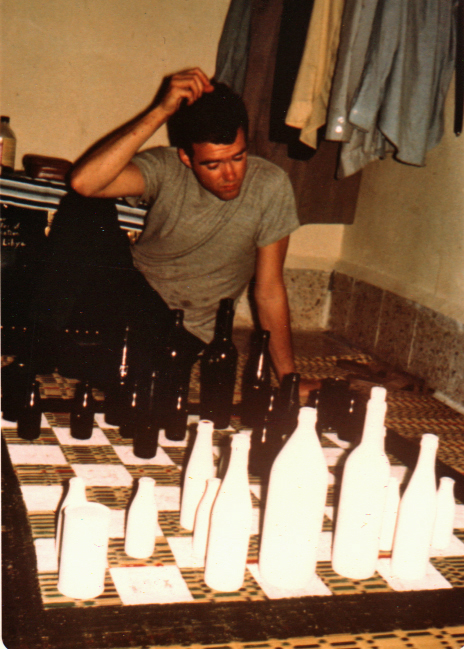
Unfortunately, the group’s mission was cancelled. Anyway, when his group first arrived in Tripoli. They were all excited. The interesting part is when Mr. Randy explained that people had different experiences, the good, the bad, and the one in between. They stayed for a week in Tripoli before heading to their final destinations. It was a nice introduction to walk around the city and meet people. You get to learn about post offices and taxis which was a good way to introduce yourself to the country as he explained.
The beginning of the mission
Before week one, Bob Pearson, in an international harvester truck, went around Libya to ask villages principals if they need English teachers. Mr. Pearson was supported by the Minister of Education to conduct this mission of distribution.
Some people went to Ghat, Fezzan, and other small villages. But, they were mainly concentrated in the Tripolitania region. For example, one volunteer went to Ojla and another went to Altaj oasis. Mr. Randy looked at the history of Libya to link all the dots together as the book is beyond his experience in Al Galaa. Turns out that in 500 BC, the continent of Africa was called Libya. If you break the word Africa in two parts; Afri- comes from the term Yefren and -ica means a place.
Mr. Randy went to teach in Al Galaa and Um Jersan. His friend Dan went to Alkhozour, they had no vegetables, meat or fish. He would walk every Thursday to Galaa to buy food and it was a 10 miles walk back and forth. They built stamina and with the hardship they faced, they still had the highest moral and they were immersed in their experience and made the best of it. Such a difficult situation would make you think that it can negatively affect a person but it can be the complete opposite.
Welcome to Al Galaa
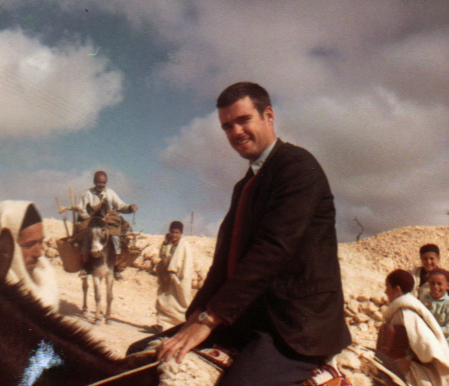
His deputy commissioner dropped him off in Al Galaa. He expressed that people were so hospital and friendly. To a point that he didn’t use any of the food he had because he was invited by people all the time. Kids thought he was Italian at first and they said ‘’Buongiorno, Buongiorno’’ but he told them instead ‘’How are you? How are you?’’. Since then, they would say it to him whenever they saw him.
I asked him about the means of transportation and communication while being in Galaa. They had a motorcycle to go from one school to another. Mr. Randy started teaching right away. He had a total of 36 students. 25 boys in Um Jersan, one girl who sat in the front, but the majority of students were males. He said that students in al Galaa were smarter though they were not disciplined while in Um Jersan, students were disciplined.
Mr. Randy learned how to make Libyan couscous from Mr. Belgasim, the school principal where Mr. Randy Hobler taught in Al Galaa. He ate couscous, Bazeen, and Spaghetti and he thought that all peace corps volunteers in Libya ate the same food but they all had different ”food experiences”. For example, there was a volunteer who only lived on spaghetti for the whole duration of his experience in Libya.
He told me that he attended a traditional wedding and as he explained, that the equivalent to an Orchestra is the Zukra. Until I told him that maybe he was referring to Zukra from the way he described the men playing music. Another think he observed from the environment is the mentality of animals, especially camels. They are so independent and smart.
The Writing Process
The research and writing processes combined of his book lasted for about 3 years. There was a lot of uncertainty after they finished teaching students. It was sad for them to leave, especially that they all had different stories. One guy gave a copy of the American constitution to one of his students, the little guy grew up and went to the US to finish his studies and his man is Ali Bout. An experience that changed the lives of many Libyans during that period.
Writing this book came when he read books written by other peace corps members and he thought that he could write a better book. This was simply the inspiration. It was hard in a good way, in terms of proofing, the number of pages, and all the different aspects linked to publishing. Now, he is in the marketing process and that is basically his job for the last 30 years so he is familiar with the process. The title of the book was a little bit challenging. However, it was inspired from 101 Arabian nights. The final title of the book was suggested by his girlfriend, Alexa.
Possibilities Post Publishing the Book
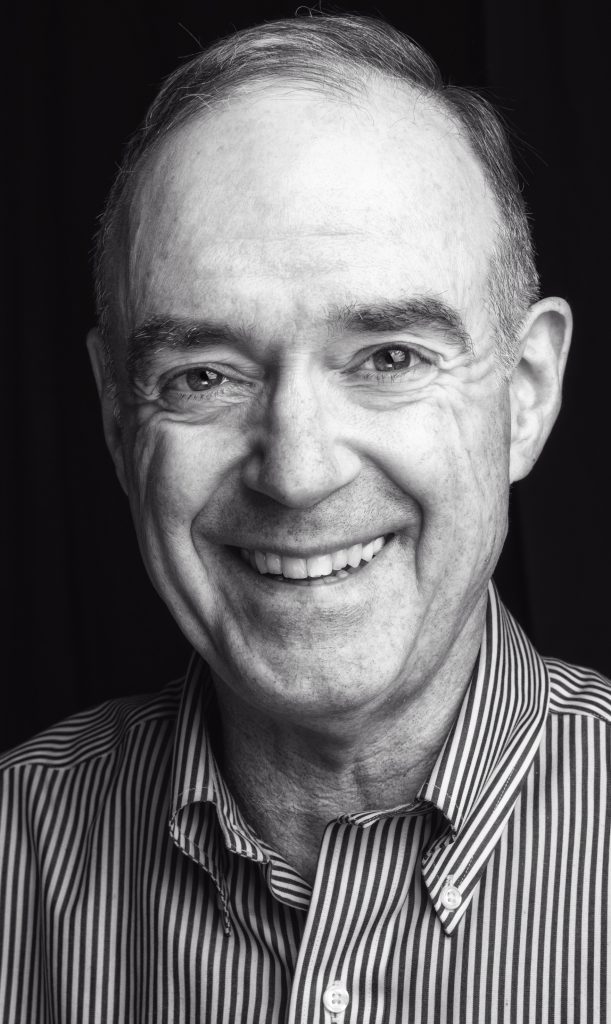
A teaspoon of honey helps the history go down – Mr. Randolph Hobler.
After over 50 years, some of his students still remember Mr. Randy and even some of the shopkeepers remember him as well. After finally finding his students; Mr. Randy was able to find the school’s principal’s daughter, Hasna Khazam. She currently lives in the USA. They met in New York last year after connecting Mrs. Hasna with Mr. Randy Hobler. She went with her husband and children to meet Mr. Randy and it was a heart-warming encounter.
Mr. Randy explained that he is looking for ways to get his book translated to Arabic as I am sure many Libyans hope to have an Arabic version of his valuable book. In terms of his target audience, so many Americans don’t know much about Libya. He has told the stories and collected bits and pieces of Libya’s history.
He put all the pieces together and created an overall feeling of what Libya is like. It is a service to the readers and it is something American readers appreciate, Mr. Randy added. He is shifting the focus on Libya from the narrative we have on the news and from what we have been seeing for the past 10 years. He read 43 peace corps books and he was careful to make the story line interesting and catchy.
I never thought that I would get to be a very small part of an incredible experience to complete a story that happened 50 years ago in my country which I wasn’t aware of. Lastly, I would like to thank Mr. Randy for the lovely conversation we had and I hope many people get to read his book because I believe that as Libyans, we should be able to know more stories related to our country.
